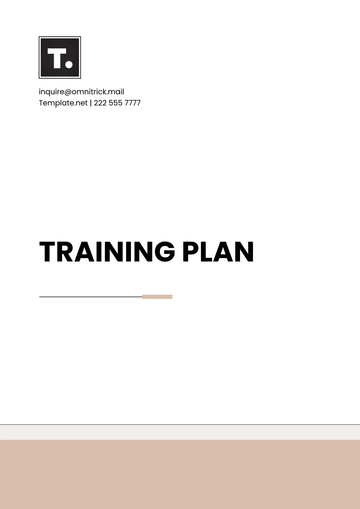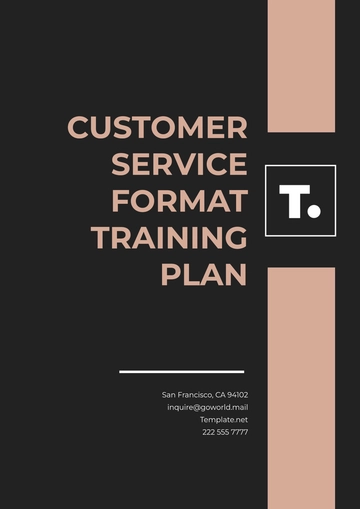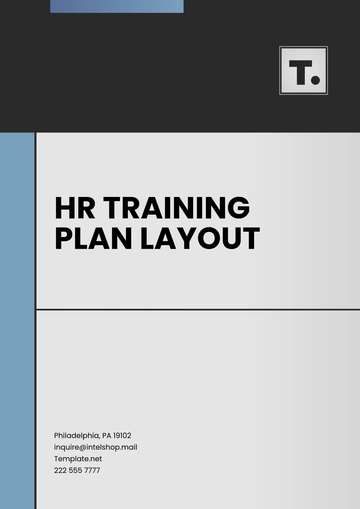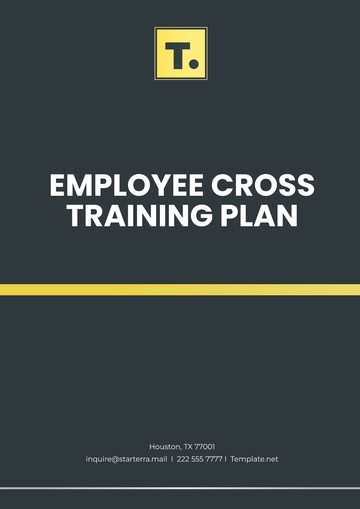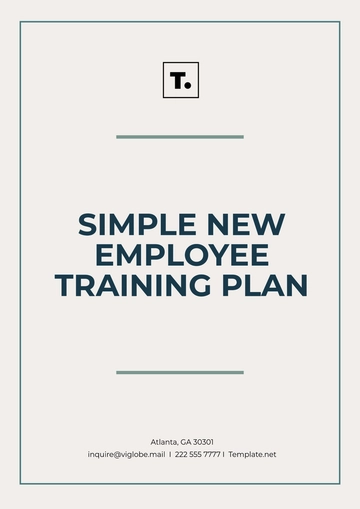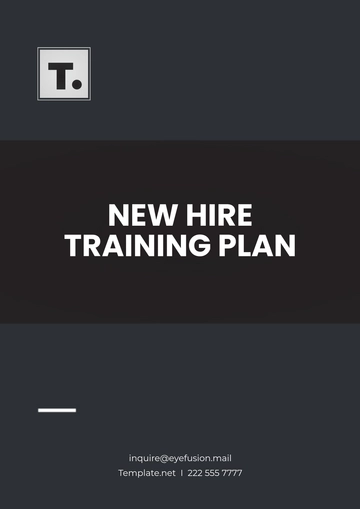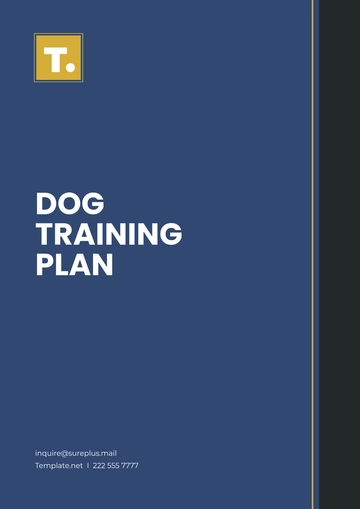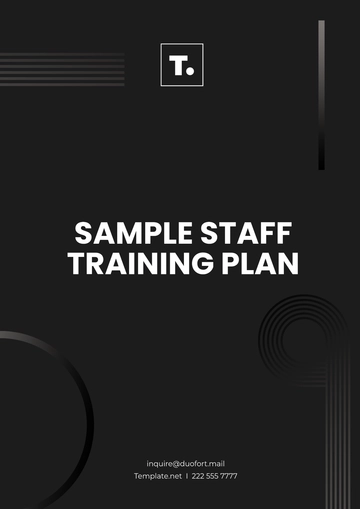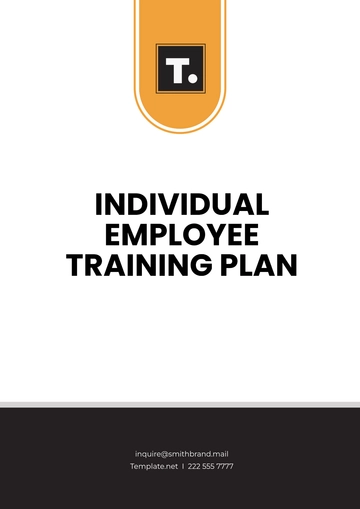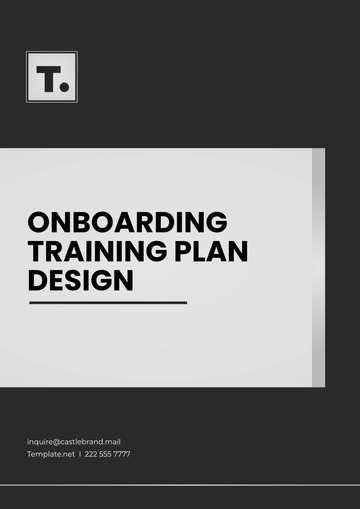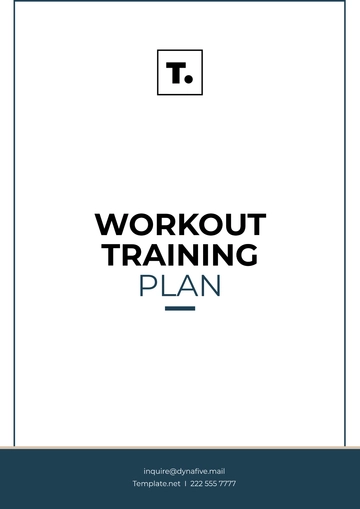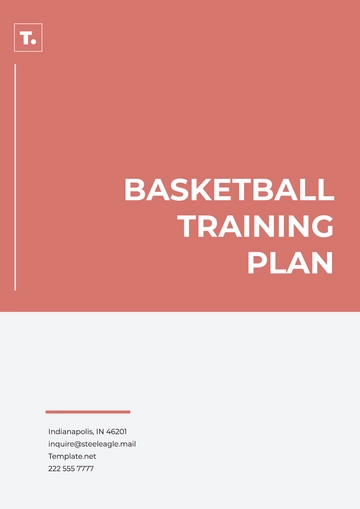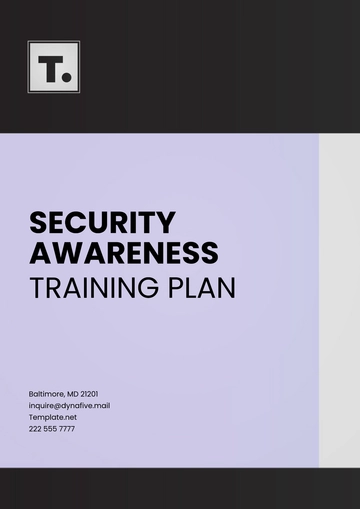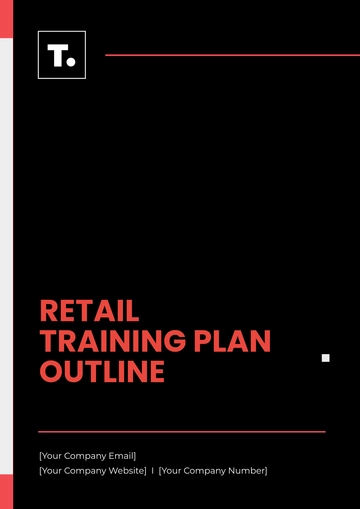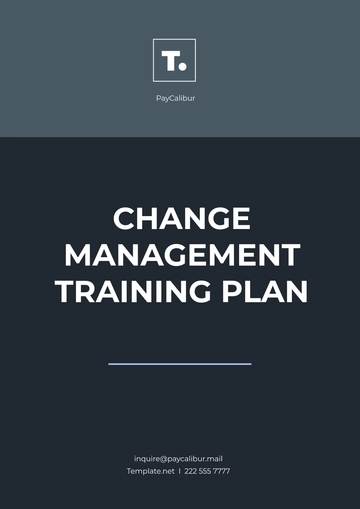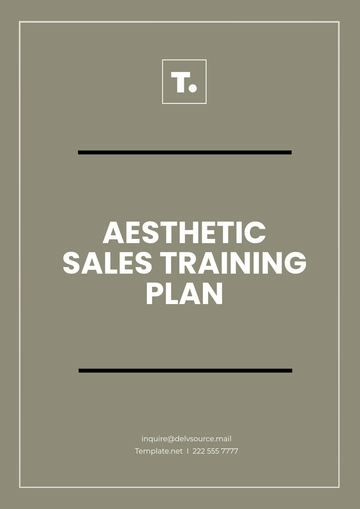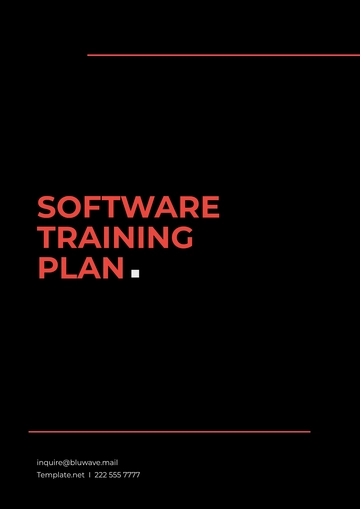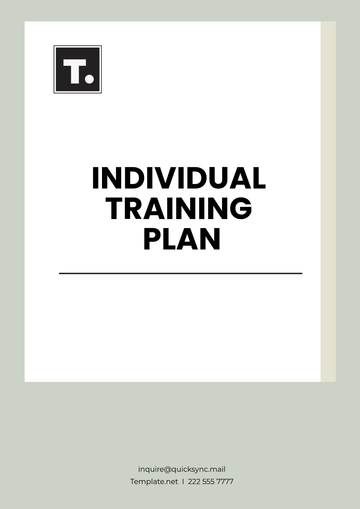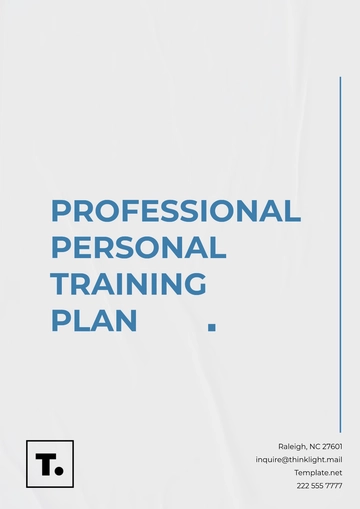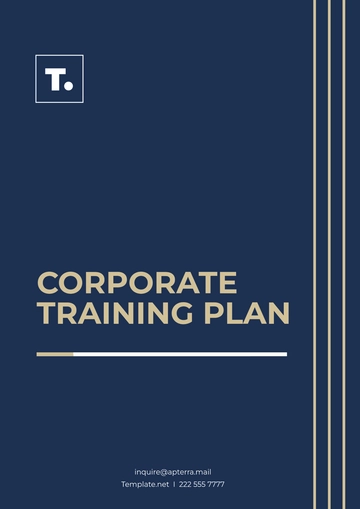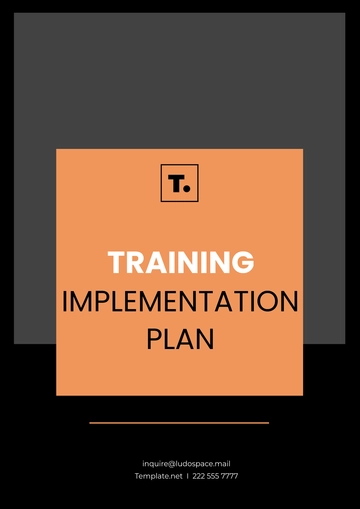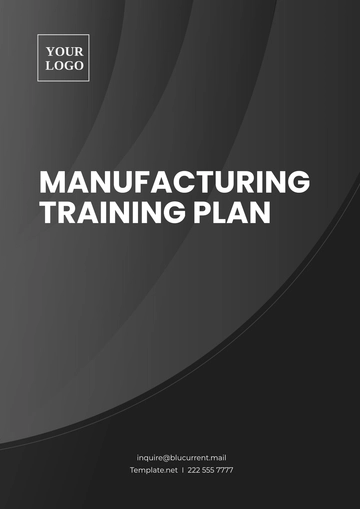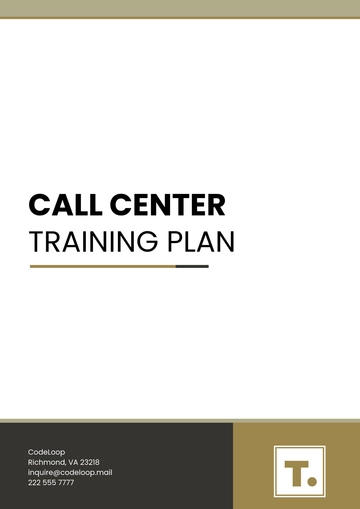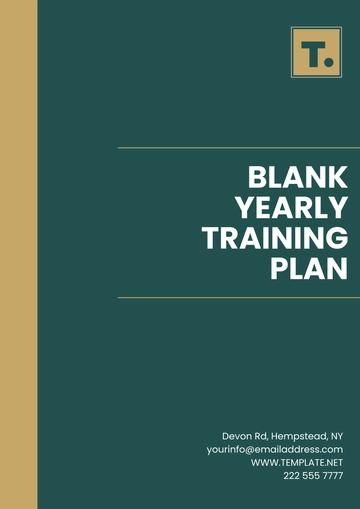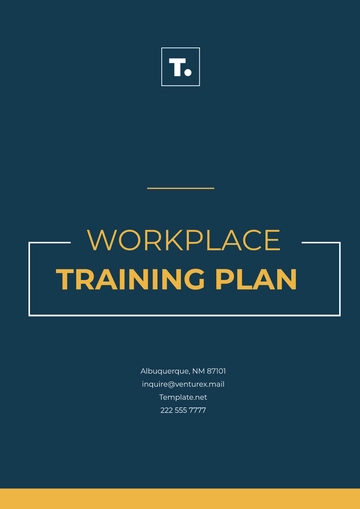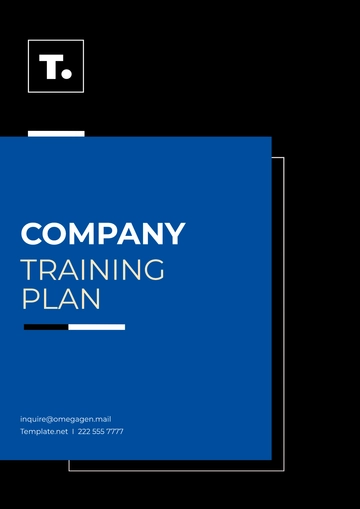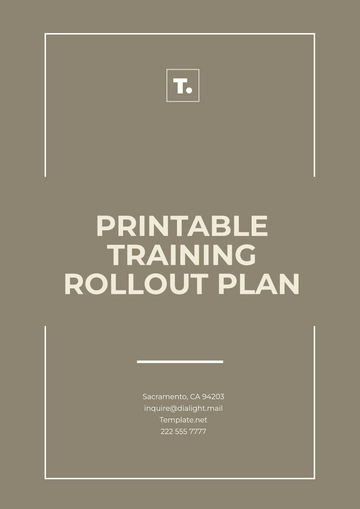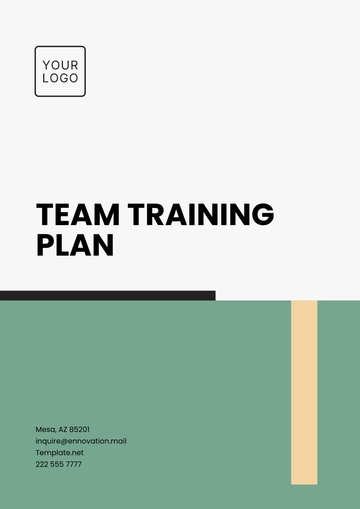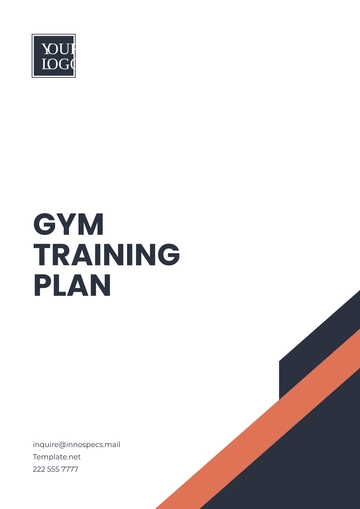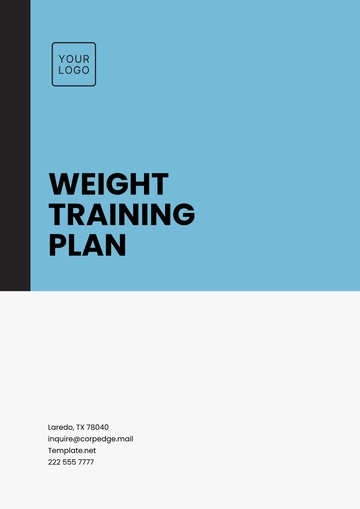Free Restaurant Training Plan
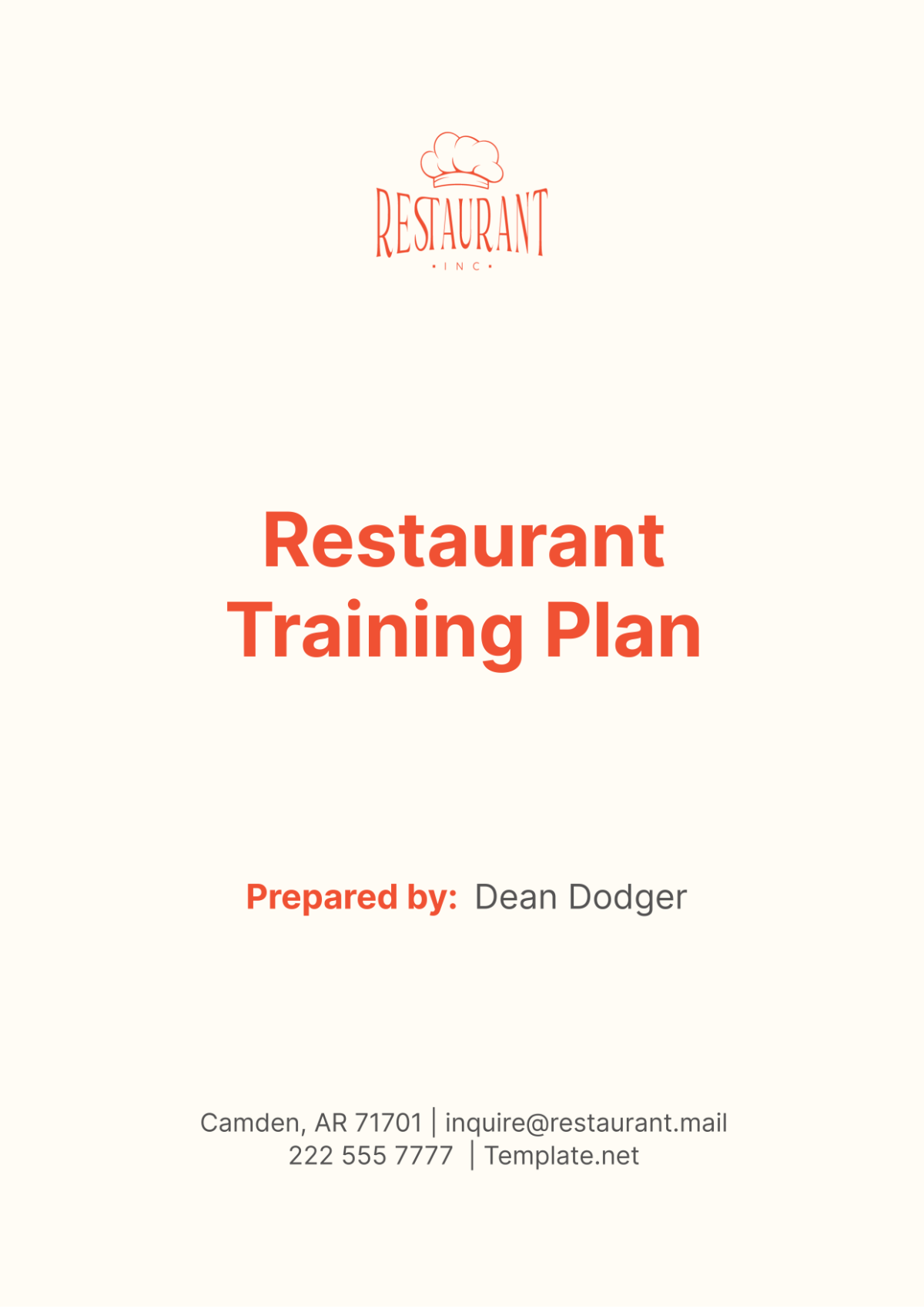
I. Introduction
1.1 Purpose
The purpose of this training plan is to ensure all employees at [Your Company Name] are thoroughly trained in all aspects of their roles to maintain the highest standards of service. This plan will outline the methods, objectives, and responsibilities for employee training. Comprehensive training is essential to uphold the restaurant's reputation, ensure customer satisfaction, and provide a safe, efficient working environment for all staff members.
1.2 Objectives
By the end of this training program, employees will be able to:
Understand and Implement [Your Company Name]'s Service Standards
A crucial objective of the training program is to ensure employees fully grasp and adhere to [Your Company Name]'s service standards. This encompasses a deep understanding of the company's mission, values, and customer service philosophy. Employees will learn the importance of consistency in service delivery, from greeting customers to handling complaints. They will be trained on the specifics of our service protocols, such as the appropriate dress code, professional language, and the expected speed of service. Role-playing scenarios will be used to demonstrate the application of these standards in various situations, ensuring employees can handle real-world challenges effectively. By the end of the training, employees should be able to consistently deliver a service experience that aligns with the company's brand and customer expectations.
Deliver Exceptional Customer Service
Delivering exceptional customer service is the cornerstone of our training program. Employees will be trained to understand the nuances of customer interactions, including active listening, empathy, and problem-solving skills. They will learn techniques to create a welcoming atmosphere, anticipate customer needs, and exceed their expectations. Training will cover the art of personalizing service, remembering regular customers' preferences, and making each customer feel valued. Employees will also be equipped with strategies for handling difficult situations and turning dissatisfied customers into loyal patrons. Through a combination of theoretical instruction and practical exercises, employees will develop the confidence and skills needed to provide outstanding service that fosters customer loyalty and enhances the restaurant's reputation.
Familiarize Themselves with the Menu and Restaurant Processes
A thorough knowledge of the menu and understanding of restaurant processes are essential for efficient operations and customer satisfaction. Employees will undergo detailed training on the ingredients, preparation methods, and presentation of each dish on the menu. This includes tasting sessions to help them describe dishes accurately and make informed recommendations. Additionally, employees will be taught about dietary restrictions, allergens, and how to accommodate special requests. Understanding the flow of restaurant operations, from order taking to food delivery and table turnover, is also critical. Training will include shadowing experienced staff and participating in each stage of service to gain hands-on experience. By the end of this module, employees should be able to navigate the menu confidently and understand the intricacies of the restaurant’s operational processes.
Work Efficiently and Safely in a Team Environment
Efficiency and safety in a team environment are vital for smooth restaurant operations. Employees will be trained on time management techniques, multitasking skills, and best practices for maintaining a clean and organized workspace. Safety protocols, including proper handling of equipment, food safety standards, and emergency procedures, will be thoroughly covered. The importance of teamwork will be emphasized, with activities designed to foster collaboration, clear communication, and mutual support among staff members. Employees will learn how to coordinate with the kitchen, management, and fellow servers to ensure seamless service. Conflict resolution strategies will also be taught to handle any interpersonal issues that may arise. By the end of the training, employees should be able to work efficiently and safely, contributing to a harmonious and productive team environment.
II. Training Overview
This chapter provides an overview of the entire training process, including the schedule, methods, and responsibilities involved in the training program. The training is structured over eight weeks, covering various critical aspects of restaurant operations to ensure employees are well-equipped to perform their roles effectively.
2.1 Training Schedule
The training schedule is divided into four key phases, each focusing on different aspects of restaurant operations. This phased approach ensures that employees can progressively build their knowledge and skills.
Week | Focus Area | Key Activities |
|---|---|---|
Week 1-2 | Orientation and Introduction to Operations | Welcome, Overview, Staff Introduction |
Week 3-4 | Customer Service Training | Principles, Complaint Handling, Customer Satisfaction |
Week 5-6 | Menu Knowledge and Food Safety | Menu Details, Preparation Standards, Food Safety |
Week 7-8 | Advanced Skills and Team Integration | Advanced Skills, Teamwork, Continuous Improvement |
2.2 Training Methods
To accommodate different learning styles and ensure comprehensive understanding, the training will employ various methods:
In-person workshops and seminars: Interactive sessions led by experienced trainers to provide hands-on experience.
Online training modules: Accessible courses covering theoretical aspects of the training.
On-the-job training: Practical, real-world training under the supervision of experienced staff.
Mentorship programs: Pairing new employees with seasoned staff for personalized guidance and support.
2.3 Responsibilities
Successful implementation of the training program requires clearly defined responsibilities:
Management: Ensure the training plan is followed and provide support. Management must also allocate necessary resources and facilitate an environment conducive to learning.
Trainers: Deliver training content and assess employee progress. Trainers are responsible for preparing training materials, conducting sessions, and providing constructive feedback.
Employees: Actively participate in training and apply learnings to their roles. Employees should engage in all training activities, seek clarification when needed, and strive to apply new skills in their daily tasks.
III. Training Modules
This chapter delves into the specific training modules, detailing the content, dates, and objectives of each module. Each module is designed to cover essential areas of restaurant operations, ensuring a holistic approach to employee training.
3.1 Orientation and Introduction to Restaurant Operations
Date: January 3, 2050
Content: Welcome to [Your Company Name], overview of restaurant operations, introduction to staff and management.
Details:
Welcome Session: Introduction to the company’s mission, vision, and values. Employees will learn about the history of the restaurant, its core principles, and long-term goals.
Operations Overview: Explanation of the day-to-day operations, including opening and closing procedures. This will include an overview of the restaurant layout, equipment, and basic operational workflows.
Staff Introduction: Meeting with key personnel and understanding their roles. Employees will be introduced to management, kitchen staff, and other key team members.
3.2 Customer Service Training
Date: January 17, 2050
Content: Principles of exceptional customer service, handling customer complaints, and ensuring customer satisfaction.
Details:
Service Standards: Training on the company’s service standards and expectations. This includes the importance of hospitality, attentiveness, and professionalism.
Complaint Handling: Techniques for effectively managing and resolving customer complaints. Employees will learn conflict resolution strategies and how to turn negative experiences into positive ones.
Customer Satisfaction: Strategies to ensure customers leave with a positive experience. This includes understanding customer needs, personalized service, and follow-up procedures.
3.3 Menu Knowledge and Food Safety
Date: January 31, 2050
Content: Detailed menu knowledge, food preparation standards, dietary restrictions, and food safety protocols.
Details:
Menu Training: Comprehensive review of the menu, including ingredients, preparation methods, and presentation. Employees will learn about the flavor profiles, origin of ingredients, and special features of each dish.
Food Safety: Instruction on food safety standards, including hygiene practices and safe food handling. This module will cover critical areas such as cross-contamination prevention, proper storage, and temperature control.
Dietary Restrictions: Awareness and accommodation of common dietary restrictions and allergies. Employees will be trained on how to handle special requests and communicate effectively with customers about dietary options.
3.4 Advanced Skills and Team Integration
Date: February 14, 2050
Content: Advanced culinary skills, teamwork and collaboration, and continuous improvement strategies.
Details:
Culinary Skills: Training on advanced cooking techniques and presentation skills. This includes garnishing, plating, and enhancing the overall dining experience.
Teamwork: Exercises to promote effective communication and collaboration within the team. Team-building activities and collaborative projects will be emphasized to foster a cohesive work environment.
Continuous Improvement: Encouraging a culture of ongoing learning and improvement. Employees will be taught the importance of feedback, self-assessment, and striving for excellence in their roles.
IV. Evaluation and Feedback
This chapter outlines the methods for assessing employee performance and gathering feedback to continuously improve the training program. Regular assessment and feedback are crucial to ensure the effectiveness of the training and address any areas needing improvement.
4.1 Performance Assessment
Employees will be assessed through:
Ongoing feedback: Regular feedback from trainers and mentors to guide development. This will include daily check-ins and informal assessments during training activities.
Performance reviews: Structured reviews at the end of each training module to assess progress. Formal evaluations will be conducted to measure knowledge retention, skill acquisition, and overall performance.
Observational assessments: Practical exams and observations to evaluate hands-on skills. Trainers will observe employees in real-time scenarios to assess their application of learned skills.
4.2 Continuous Improvement
Feedback from trainees and trainers will be collected to continuously improve the training plan. Suggestions for improvement should be directed to [Your Email].
Methods of Feedback Collection:
Surveys: Periodic surveys to gather feedback on training effectiveness. These surveys will include questions about training content, delivery, and overall satisfaction.
Focus Groups: Small group discussions to explore specific training aspects in detail. Focus groups will provide in-depth insights and foster open communication about training experiences.
One-on-One Meetings: Personal meetings to address individual concerns and suggestions. Trainers will meet with employees to discuss their progress, challenges, and areas for improvement.
V. Conclusion
This chapter wraps up the training plan, expressing gratitude to the participants and providing contact information for any further queries or support needed.
5.1 Acknowledgments
Thank you for participating in [Your Company Name]'s training program. Your commitment to learning and excellence helps us maintain our high standards and provides exceptional experiences for our customers. We appreciate your dedication and look forward to seeing you apply your new skills in your roles.
5.2 Contact Information
For any queries, please contact:
[Your Name]
[Your Email]
[Your Company Name]
[Your Company Number]
[Your Company Address]
[Your Company Website]
[Your Company Social Media]
By following this comprehensive training plan, we aim to equip our employees with the necessary skills and knowledge to perform their roles effectively, ensuring [Your Company Name] continues to thrive and provide outstanding service to our customers.
- 100% Customizable, free editor
- Access 1 Million+ Templates, photo’s & graphics
- Download or share as a template
- Click and replace photos, graphics, text, backgrounds
- Resize, crop, AI write & more
- Access advanced editor
Elevate your restaurant staff's skills and performance with Template.net's Restaurant Training Plan Template. This comprehensive tool provides a structured framework for employee development, covering essential topics such as customer service, food safety, and operational procedures. Fully editable and customizable with our intuitive AI editor tool, it enables you to tailor training programs to meet your restaurant's specific needs. Invest in your team's success and ensure exceptional service, exclusively at Template.net.
You may also like
- Finance Plan
- Construction Plan
- Sales Plan
- Development Plan
- Career Plan
- Budget Plan
- HR Plan
- Education Plan
- Transition Plan
- Work Plan
- Training Plan
- Communication Plan
- Operation Plan
- Health And Safety Plan
- Strategy Plan
- Professional Development Plan
- Advertising Plan
- Risk Management Plan
- Restaurant Plan
- School Plan
- Nursing Home Patient Care Plan
- Nursing Care Plan
- Plan Event
- Startup Plan
- Social Media Plan
- Staffing Plan
- Annual Plan
- Content Plan
- Payment Plan
- Implementation Plan
- Hotel Plan
- Workout Plan
- Accounting Plan
- Campaign Plan
- Essay Plan
- 30 60 90 Day Plan
- Research Plan
- Recruitment Plan
- 90 Day Plan
- Quarterly Plan
- Emergency Plan
- 5 Year Plan
- Gym Plan
- Personal Plan
- IT and Software Plan
- Treatment Plan
- Real Estate Plan
- Law Firm Plan
- Healthcare Plan
- Improvement Plan
- Media Plan
- 5 Year Business Plan
- Learning Plan
- Marketing Campaign Plan
- Travel Agency Plan
- Cleaning Services Plan
- Interior Design Plan
- Performance Plan
- PR Plan
- Birth Plan
- Life Plan
- SEO Plan
- Disaster Recovery Plan
- Continuity Plan
- Launch Plan
- Legal Plan
- Behavior Plan
- Performance Improvement Plan
- Salon Plan
- Security Plan
- Security Management Plan
- Employee Development Plan
- Quality Plan
- Service Improvement Plan
- Growth Plan
- Incident Response Plan
- Basketball Plan
- Emergency Action Plan
- Product Launch Plan
- Spa Plan
- Employee Training Plan
- Data Analysis Plan
- Employee Action Plan
- Territory Plan
- Audit Plan
- Classroom Plan
- Activity Plan
- Parenting Plan
- Care Plan
- Project Execution Plan
- Exercise Plan
- Internship Plan
- Software Development Plan
- Continuous Improvement Plan
- Leave Plan
- 90 Day Sales Plan
- Advertising Agency Plan
- Employee Transition Plan
- Smart Action Plan
- Workplace Safety Plan
- Behavior Change Plan
- Contingency Plan
- Continuity of Operations Plan
- Health Plan
- Quality Control Plan
- Self Plan
- Sports Development Plan
- Change Management Plan
- Ecommerce Plan
- Personal Financial Plan
- Process Improvement Plan
- 30-60-90 Day Sales Plan
- Crisis Management Plan
- Engagement Plan
- Execution Plan
- Pandemic Plan
- Quality Assurance Plan
- Service Continuity Plan
- Agile Project Plan
- Fundraising Plan
- Job Transition Plan
- Asset Maintenance Plan
- Maintenance Plan
- Software Test Plan
- Staff Training and Development Plan
- 3 Year Plan
- Brand Activation Plan
- Release Plan
- Resource Plan
- Risk Mitigation Plan
- Teacher Plan
- 30 60 90 Day Plan for New Manager
- Food Safety Plan
- Food Truck Plan
- Hiring Plan
- Quality Management Plan
- Wellness Plan
- Behavior Intervention Plan
- Bonus Plan
- Investment Plan
- Maternity Leave Plan
- Pandemic Response Plan
- Succession Planning
- Coaching Plan
- Configuration Management Plan
- Remote Work Plan
- Self Care Plan
- Teaching Plan
- 100-Day Plan
- HACCP Plan
- Student Plan
- Sustainability Plan
- 30 60 90 Day Plan for Interview
- Access Plan
- Site Specific Safety Plan
